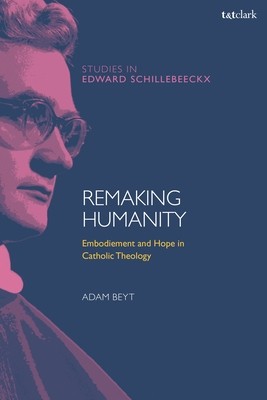
- We will send in 10–14 business days.
- SAVE -10% with code: EXTRA
Reviews
Description
Drawing upon Edward Schillebeeckx's theology and Judith Butler's philosophy, Adam Beyt uses the framework of nonviolent hope to construct a theological anthropology for ethics. Theological anthropology grounds moral reflection on discipleship. In its framing of embodied difference, such theology can participate in dehumanizing violence. Dehumanizing violence indicates words, institutions, or act causing harm that denies the full human dignity stemming from being made in the image and likeness of God. Theological anthropology can participate in dehumanizing violence by claiming an uninterrogated universality that marginalizes bodies due to their perceived differences such as gender, race, sexuality, or ability.
The book's constructive political theology integrates Schillebeeckx's and Butler's thought with queer theory and phenomenology to model embodiment as an "enfleshing dynamism" between bodies and signification. The text then posits Catholic discipleship as incarnating the hope of the Reign of God. Combining reflections from Schillebeeckx and Butler, this hope centers discipleship as nonviolent world building. Concluding with a sustained reflection with the writings of Franz Fanon and Walter Benjamin, the final chapter sketches a Catholic solidaristic response to contemporary struggles against colonizing and state violence.EXTRA 10 % discount with code: EXTRA
The promotion ends in 23d.08:22:05
The discount code is valid when purchasing from 10 €. Discounts do not stack.
- Author: Adam Beyt
- Publisher: T&T Clark
- ISBN-10: 0567714160
- ISBN-13: 9780567714169
- Format: 15.6 x 23.4 x 1.6 cm, kieti viršeliai
- Language: English English
Drawing upon Edward Schillebeeckx's theology and Judith Butler's philosophy, Adam Beyt uses the framework of nonviolent hope to construct a theological anthropology for ethics. Theological anthropology grounds moral reflection on discipleship. In its framing of embodied difference, such theology can participate in dehumanizing violence. Dehumanizing violence indicates words, institutions, or act causing harm that denies the full human dignity stemming from being made in the image and likeness of God. Theological anthropology can participate in dehumanizing violence by claiming an uninterrogated universality that marginalizes bodies due to their perceived differences such as gender, race, sexuality, or ability.
The book's constructive political theology integrates Schillebeeckx's and Butler's thought with queer theory and phenomenology to model embodiment as an "enfleshing dynamism" between bodies and signification. The text then posits Catholic discipleship as incarnating the hope of the Reign of God. Combining reflections from Schillebeeckx and Butler, this hope centers discipleship as nonviolent world building. Concluding with a sustained reflection with the writings of Franz Fanon and Walter Benjamin, the final chapter sketches a Catholic solidaristic response to contemporary struggles against colonizing and state violence.

Reviews